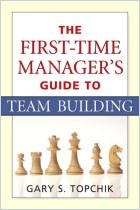
Creating Passion-Driven Teams
How to Stop Micromanaging and Motivate People to Top Performance
Recommendation
Don’t try to motivate your employees by manipulating them; be honest with them and you’ll discover that they motivate themselves. Don’t humiliate them when they make mistakes; instead, treat errors as valuable learning experiences. Don’t automatically tune staffers out when they speak; listen and you will discover a lot. Don’t hold meetings just to meet; make sure every conference has a purpose. And above all, don’t micromanage, because that drives good people out the door. This is an ample list of management “don’ts.” But what should you do to manage well? Training expert Dan Bobinski says the answer is simple: Provide the conditions that will spark passion in your people. Although his anecdotes are overly simplified and may seem contrived, getAbstract believes Bobinski presents his points persuasively. His colorful, elementary guide will give newbie supervisors and human resource managers much pause for thought.
Summary
About the Author
Dan Bobinski is a training specialist, executive coach, consultant, columnist, author and keynote speaker. He is president and CEO of a leadership development and management training firm.




















Comment on this summary